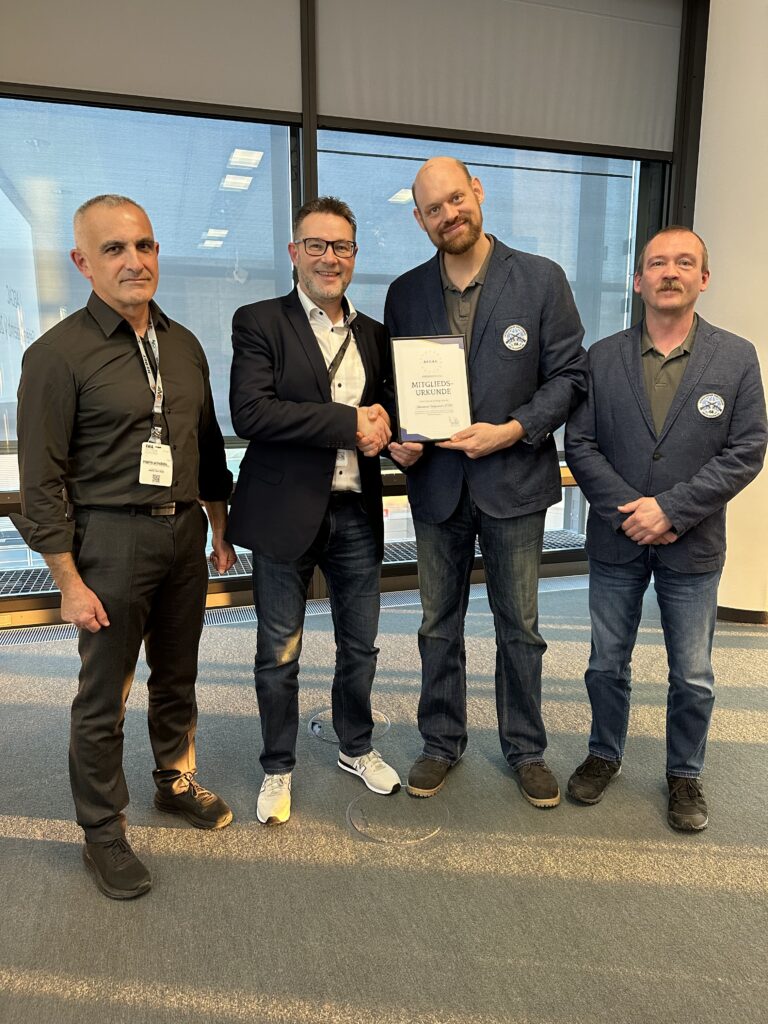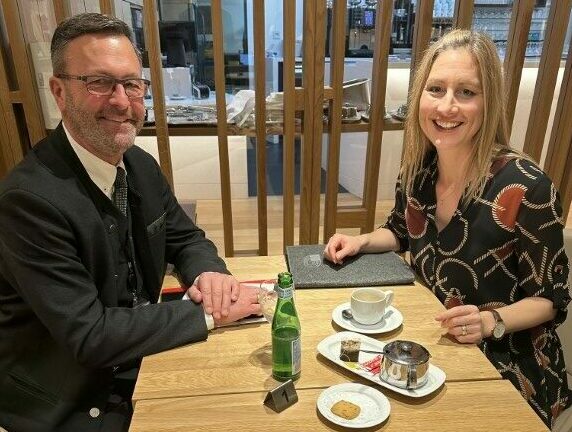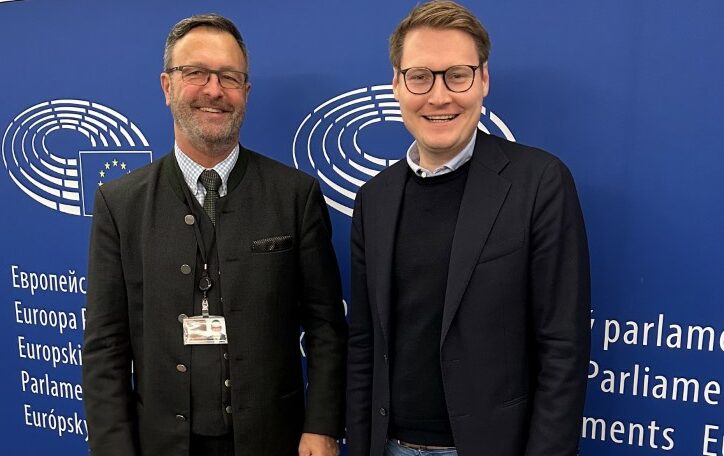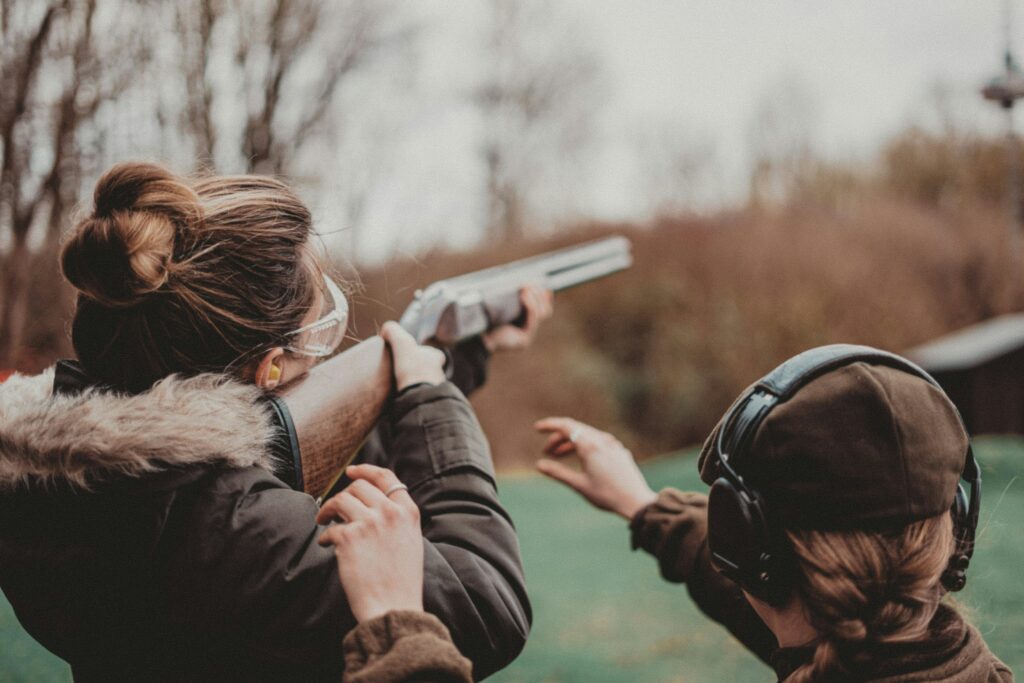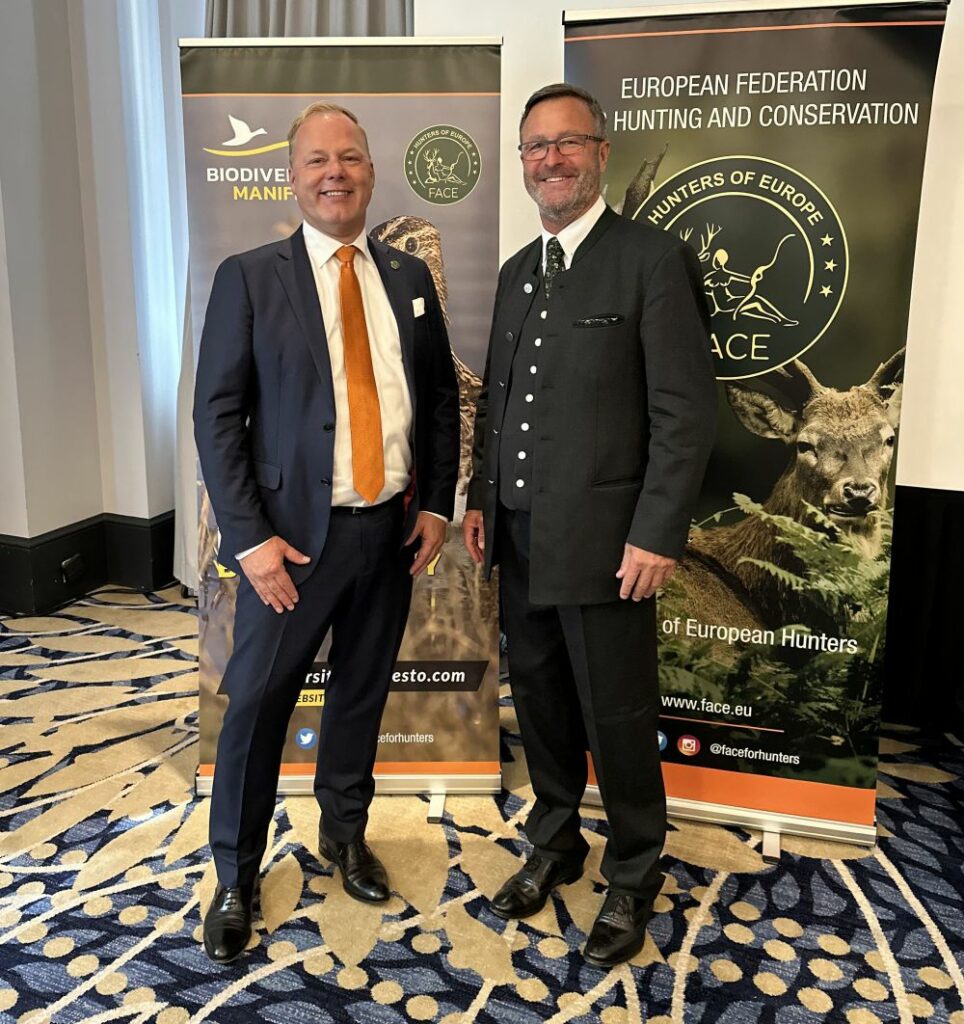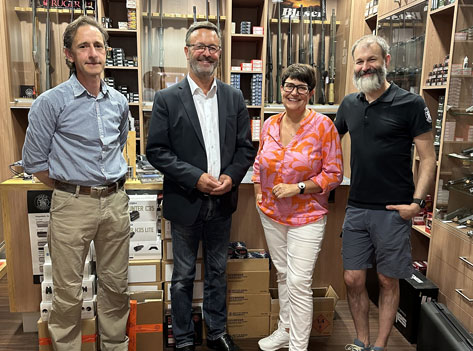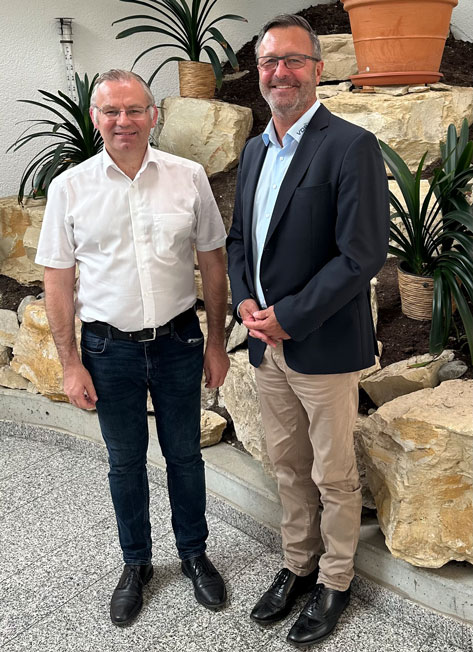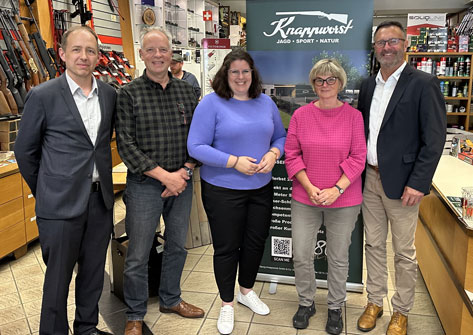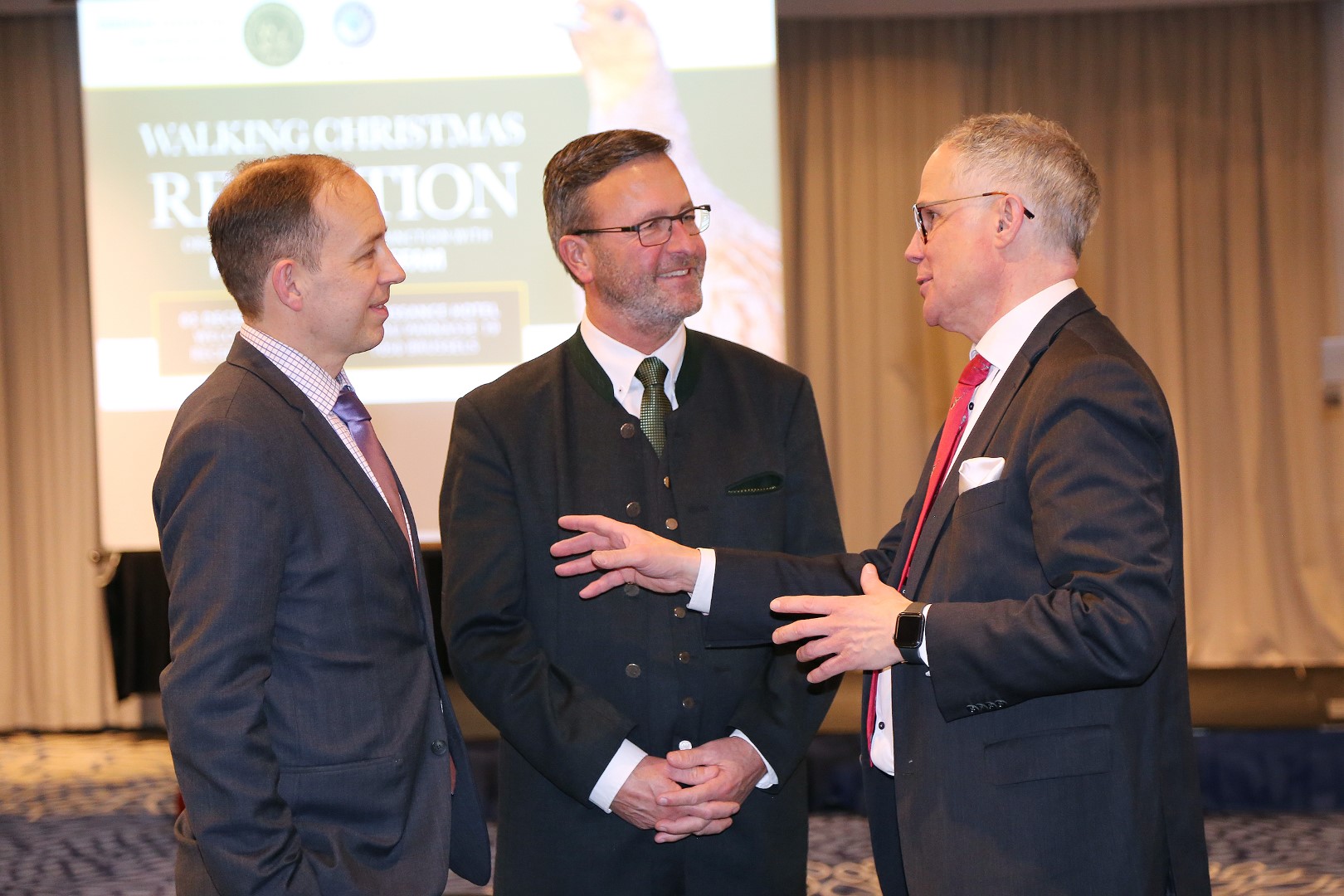AECAC President visits the Swiss Gunsmiths‘ and Gun Dealers’ Association
On Monday, 7 April 2025, the President of the AECAC, Michael Blendinger, accepted the invitation to the 113th General Assembly of the Swiss Gunsmiths‘ and Gun Dealers’ Association SBC/ASA.
At the well-attended event in Lupfig (Aargau), after the internal part of the association, the president of the SBC, Daniel Wyss, presented the public part with the annual report and elections to board positions, and the head of apprenticeships, Urs Glauser, honoured the examination graduates.
This was followed by several informative short presentations on hunting regulations, changes to firearms legislation and specific Swiss topics such as the list of aids for shooting with army weapons, as well as greetings from various Swiss associations and institutions.
In addition to a commitment to the industry, the presentation of the TWINT payment app brought a glimmer of hope for the now global problem of the exclusion of the arms trade from online payment service providers, at least for our Swiss colleagues.
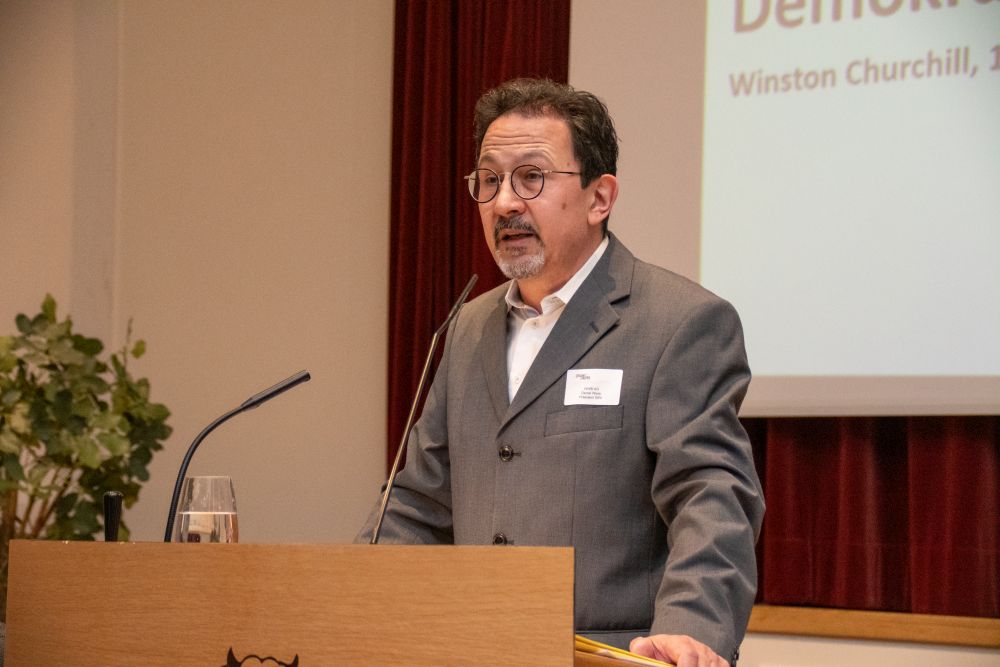
Vice President Christoph Gilgen led through the Foreign/International Politics item and gave President Michael Blendinger the opportunity to introduce AECAC and briefly report on the latest developments in EU legislation, such as the planned lead ban under the REACH Regulation and the revision of the Firearms Directive in 2025.
The agenda was concluded with a speech by Thierry Burkart, member of the Council of States of the Canton of Aargau and party president of the Swiss FDP, on the topic of “Security policy in connection with the arms industry”.
The guests then met for an aperitif, followed by lunch together, which provided an opportunity for many interesting discussions.
A table exhibition for the presentation of new products flanked the all-round successful event.
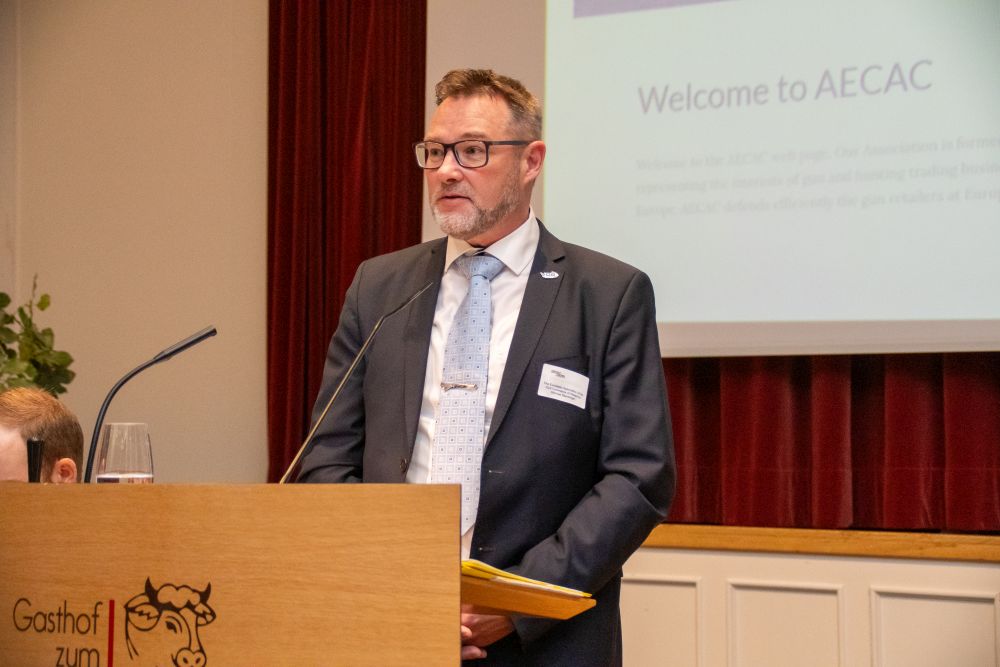
Michael Blendinger (AECAC-President)
(Photo by Nathalie Homberger)
Daniel Wyss (SBC-President)
(Photo by Nathalie Homberger)
The number of guests that our Swiss colleagues were able to gather was remarkable. For example, in addition to the aforementioned party president of the Swiss FDP, Thierry Burkart, the Managing Director of Jagd Schweiz, David Clavadetscher, as well as high-ranking representatives of the Central Weapons Centre, the Ministry of Economic Affairs SECO and the SAT division of the Swiss Armed Forces were also present.
President Blendinger commented: “You can clearly see that the firearms industry in Switzerland is held in high esteem by the specialised services. I was impressed by the high-calibre visitors and discussions at eye level. Even though Swiss firearms legislation also has some pitfalls, the mutual interaction reflects the defining Swiss principle: direct and immediate democracy, in which decisions are actually made by the people.”
AECAC President visits the Swiss Gunsmiths‘ and Gun Dealers’ Association Read More »

